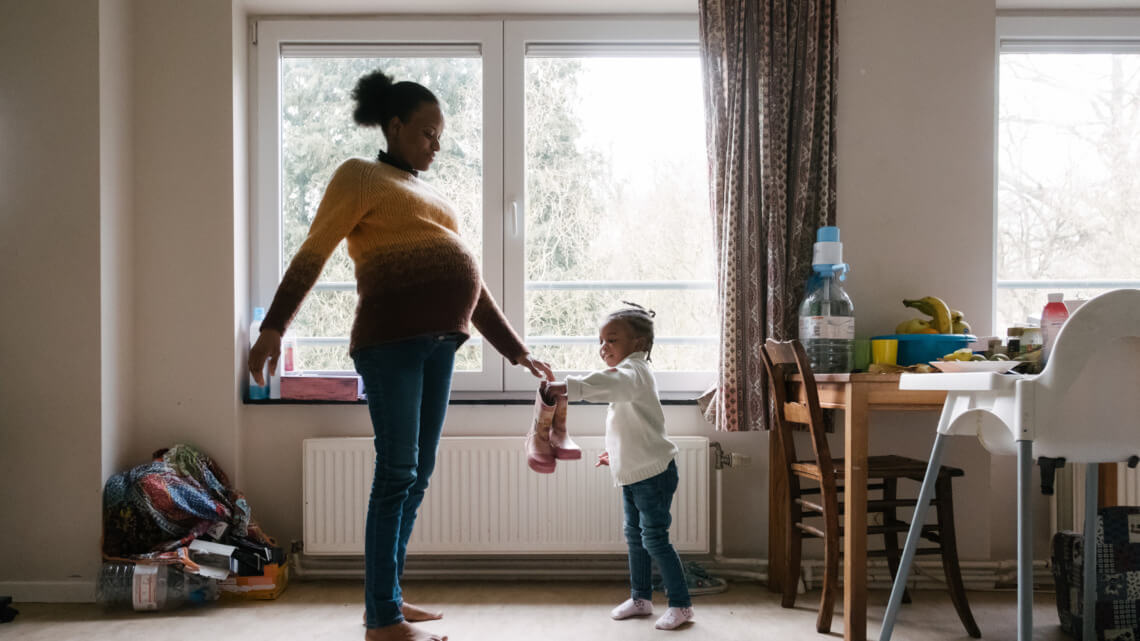A PERIOD OF TRANSITION FOR THE MOST VULNERABLE
The people staying in collective reception centers, who have received a positive decision on their application for international protection (asylum), have only two months to leave the center and begin their lives independently.
This transition represents an important and delicate step. This is even more true for people with specific vulnerabilities, including people with medical or psychological needs, or because of their personal situation – a single mother who is illiterate or pregnant, a man who is caring for a child with a disability…
>>ALSO READ: Vulnerable refugees: last stop on their way to independence
The project “TVU” (for “vulnerable transitions”) aims to help these people and provides them with three months of reinforced support. This period of transition can be extended for another three months. Fedasil is responsible for the reception of applicants for international protection in Belgium and is the authority that identifies individuals who meet the conditions to join this project.
SUPPORT AT EACH STEP
TVU Brussels has nine transition apartments available. Some are designated for individuals, while others are for families. The private housing market is quite saturated, so finding housing that is adapted to meet their needs (such as wheelchair accessibility) is often complicated.
A team of two support staff and two counselors for inclusion are available to support people with vulnerabilities, not just in their search for permanent housing, but also in medical, social, and legal matters. The counselors can help them find a doctor and go with them to the first appointment. They explain how to take public transportation, sort garbage, use mutual insurance, and create a budget. They lend a helping hand through any administrative processes and get in contact with family support services, home care, etc. The main objective is always the same: the Caritas team offers support, but it is the people themselves who take the initiative.
>>ALSO READ: Going to school, taking the tram, or sorting trash: a new life after the trauma in Afghanistan
In some cases, it turns out that some people are not ready to live independently yet. If so, Fedasil then asses if the support can be extended.
Concretely, the TVU team provides:
- Accommodation in individual housing in order to allow for the independent management of one’s housing, budget, and daily life. These accommodations are offered in three major cities of the country: Brussels, Antwerp, and Liège. The accommodation period is transitional and is no longer than six months.
- Adapted social support aimed at addressing specific needs, reinforcing skills, knowledge, and social capital, as well as building a professional and community network around the individual.
- Support with searching for permanent housing in the private market and for understanding their social rights.
A crucial step towards independence is getting all the administrative formalities in order. An identity card is a necessary document to obtain. Without one, it is impossible to get registered with mutual insurance or a bank.










